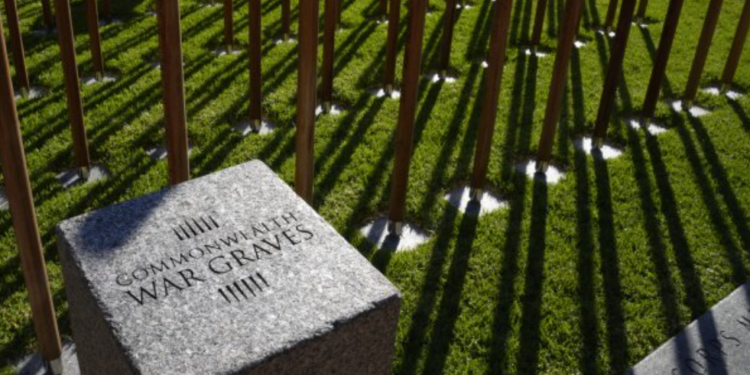Jan 28, 2025 Story by: Editor
A new memorial in Cape Town has been unveiled to honor the hundreds of South African servicemen, predominantly black, who lost their lives during World War One but remained unacknowledged for over a century.
The memorial commemorates 1,772 men who served in hazardous and arduous non-combatant roles in East Africa. For decades, these servicemen had no known graves or recognition. Now, individually engraved timber posts at the Cape Town Labour Corps Memorial bear the names of each serviceman.
Princess Anne, president of the Commonwealth War Graves Commission (CWGC), officially inaugurated the memorial during a poignant ceremony attended by descendants of the fallen.
Back in 2021, the UK issued an apology after a report attributed the failure to properly honor at least 100,000 black and Asian soldiers to “pervasive racism.”
Relatives of the servicemen expressed their pride and joy at the long-overdue recognition. “It makes us proud really, that at last, we can be one of the families that people can talk about in the due course of history,” said Elliot Malunga Delihlazo, great-nephew of driver Bhesengile Delihlazo, who died on 21 January 1917. While Delihlazo’s family had previously erected a private memorial stone at their homestead, the new public recognition brought them immense satisfaction.
Another descendant, Zweletu Hlakula, great-grandson of serviceman Job Hlakula, said, “We are very proud of him. We even rejoice when we talk about Job, it’s a pride that we’ve got in our name, for him to be remembered.”
The servicemen’s roles included working as porters, wagon drivers, and railway workers.
Claire Horton, director general of the CWGC, described the memorial as “a culmination of years of work” and “a poignant tribute to the predominantly black South Africans who fought in Africa during the First World War and who were not commemorated at the time.”
This long-awaited memorial not only provides a lasting tribute to these servicemen but also seeks to rectify the historical oversight that left their contributions forgotten for generations. Source: BBC

















